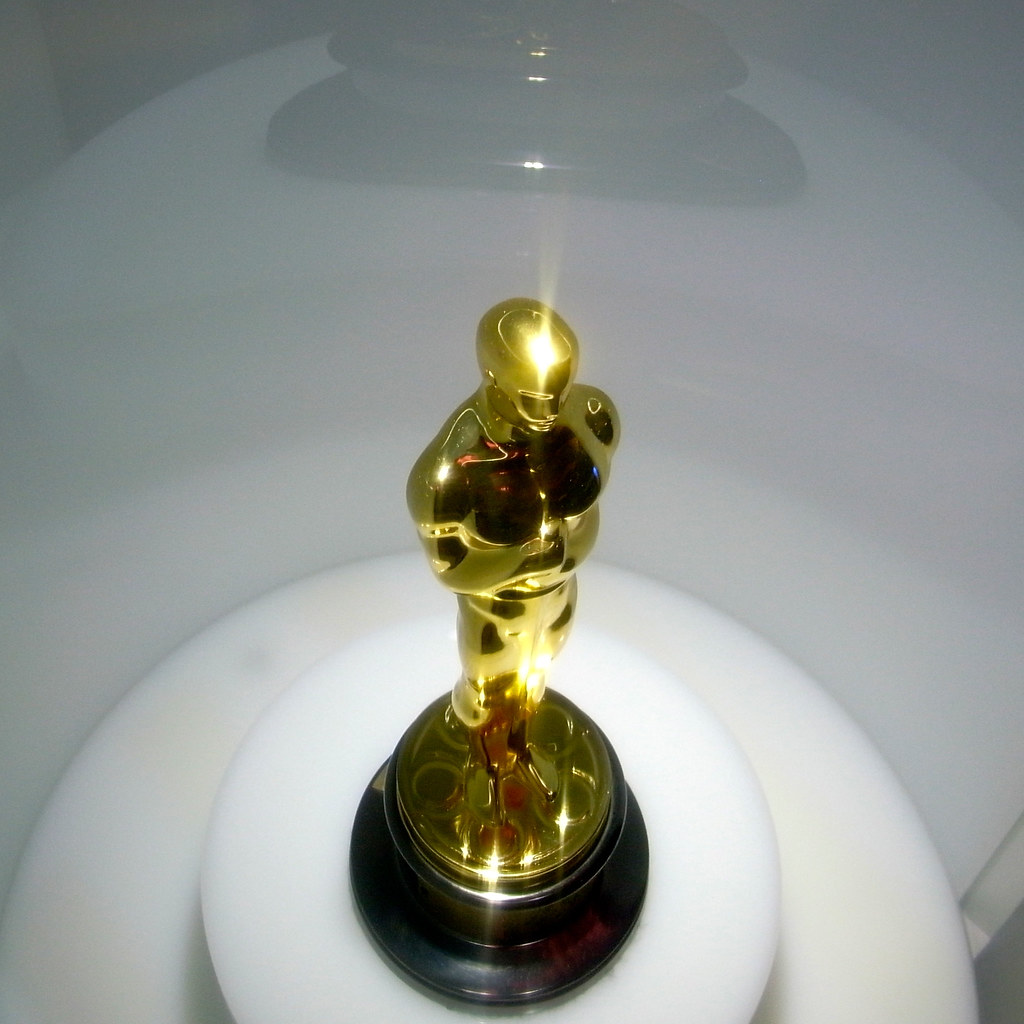Alright, buckle up, internet, because we’re about to dive deep into a fascinating, and sometimes cringe-worthy, aspect of celebrity life: their business ventures that went spectacularly wrong! You see all the glitz, the glamour, the endless success stories of stars turning their fame into entrepreneurial empires like Kim Kardashian’s SKIMS or Rihanna’s Fenty Beauty, and it’s easy to assume that once you’re famous, everything you touch automatically turns to gold. But guess what? Even the biggest names, with all their PR teams, endless resources, and legions of devoted fans, can face colossal failures when they try to conquer the cutthroat world of business.
Entrepreneurship is notoriously tough, folks – even with a massive built-in audience and a bank account that most of us can only dream of. It’s a complex game that demands a perfectly mixed cocktail of shrewd business acumen, raw talent, impeccable timing, and let’s be totally honest, more than a dash of pure, unadulterated luck to make a business truly shine. And when that magic mix isn’t quite right, when a venture goes south, well, thanks to their high-profile status, everyone knows about it. These aren’t just minor missteps or quiet fizzles; these are epic flameouts that cost millions, proving once and for all that sometimes, even superstars should probably just stick to what made them famous in the first place.
So, prepare yourself for a candid, behind-the-scenes look at some of the most spectacular celebrity business blunders in recent memory, along with a few blasts from the past. From tech gadgets that nobody really wanted to themed restaurants that served up more debt than deliciousness, these stories offer a fascinating blend of cautionary tales and compelling insights into the unpredictable realm where fame collides with finance. We’re about to explore the less glamorous, but incredibly instructive, side of celebrity entrepreneurship. Let’s dive into the first batch of these unforgettable, and often expensive, failures!

1. **Neil Young’s Pono Player Gets Passed Over**
Remember that moment when legendary musician Neil Young, known for his iconic hat and unwavering passion for sound, decided he was going to revolutionize how we listen to music? Back in 2011, he boldly established Pono, heralded as the next big thing in enhancing the digital listening experience, set to rival and even outshine the mighty iPod. His vision was clear: deliver a superior quality of music through his $400 Pono Player and its associated PonoMusic Store platform. Young genuinely believed he was bringing something groundbreaking to audiophiles.
However, the execution and, perhaps, the market’s readiness, presented significant hurdles. The Pono Player immediately stood out with its “weird triangular design,” which wasn’t easy to carry around like the sleek iPods. More crucially, critics and everyday users alike struggled to discern a significant difference between Pono’s supposedly superior quality and a regular MP3 file. If the enhanced audio quality isn’t easily perceivable, justifying a $400 premium becomes a tough sell for the average consumer.
Despite Young’s fervent advocacy, Pono struggled to gain mainstream traction. The high price point for a perceived marginal improvement, coupled with its unconventional form factor, limited its appeal. Neil Young himself declared the official demise of the PonoPlayer in 2017. It was an ambitious, heartfelt attempt by an artist to improve music consumption, but it ultimately served as a potent example of how even a beloved icon’s vision can stumble when it doesn’t align with broad consumer perception and practical realities.
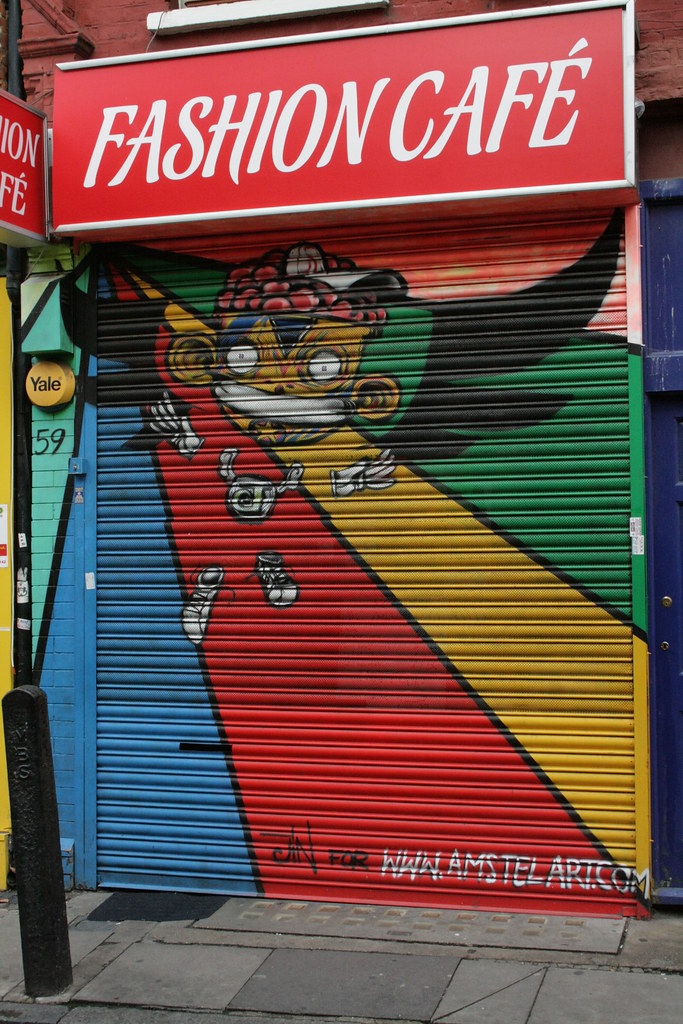
2. **Supermodels’ Fashion Cafe Fizzles Out**
The fabulous ’90s truly were the heyday of themed restaurants, with places like Hard Rock Cafe and Planet Hollywood dominating. In 1995, it probably seemed like a brilliant idea to launch a restaurant concept centered around high fashion. This dream materialized as the Fashion Cafe, launching its flagship site in New York with an unparalleled quartet of supermodel royalty: Naomi Campbell, Christy Turlington, Claudia Schiffer, and Elle MacPherson.
With these iconic faces leading the charge, the initial buzz was immense, and a total of eight locations opened worldwide. The models were reportedly offered $50,000 to $100,000 for each personal appearance at openings, plus a share of profits. It seemed like an unstoppable combination of celebrity power and a trendy concept, poised for global success.
However, the runway quickly became rocky. The cafes failed to attract the fashion crowd, and things took an un-glamorous turn with the legal troubles of the entrepreneurial brothers, Tommaso and Francesco Buti. Both were indicted on over 50 federal charges each, including fraud, money laundering, and conspiracy. Authorities alleged they deceived investors by falsely claiming personal investment while diverting funds. The brothers fled to Italy and were never extradited, turning a high-fashion dream into a notorious financial scandal.
Read more about: From Subprime Cars to Social Media Scandals: The Controversial Ventures and Failed Empires of High-Profile Personalities

3. **Jessica Simpson’s Beauty Blunder with Dessert Beauty**
Before she became a billionaire fashionista, singer Jessica Simpson ventured into the cosmetics industry. In 2004, she launched Dessert Beauty, a brand offering flavored beauty products that aimed to combine cosmetics with deliciousness. The idea was unique: products that were not just for looking good, but also for tasting good.
However, this sweet concept quickly turned sour, sparking significant controversy. The line faced criticism due to the overtly ualized marketing of its edible items, leading to considerable backlash and, crucially, to legal disputes. This controversial approach generated negative perception that was difficult for the brand to overcome.
Compounding the problems, both Simpson and Sephora found themselves embroiled in lawsuits from the line’s manufacturers concerning unpaid profits. This combination of controversial marketing and mounting legal and financial woes proved too much. Within a remarkably short span of just a few months after its launch, Dessert Beauty was unceremoniously discontinued, a swift and costly lesson in the complexities of celebrity product lines.
Read more about: From Subprime Cars to Social Media Scandals: The Controversial Ventures and Failed Empires of High-Profile Personalities
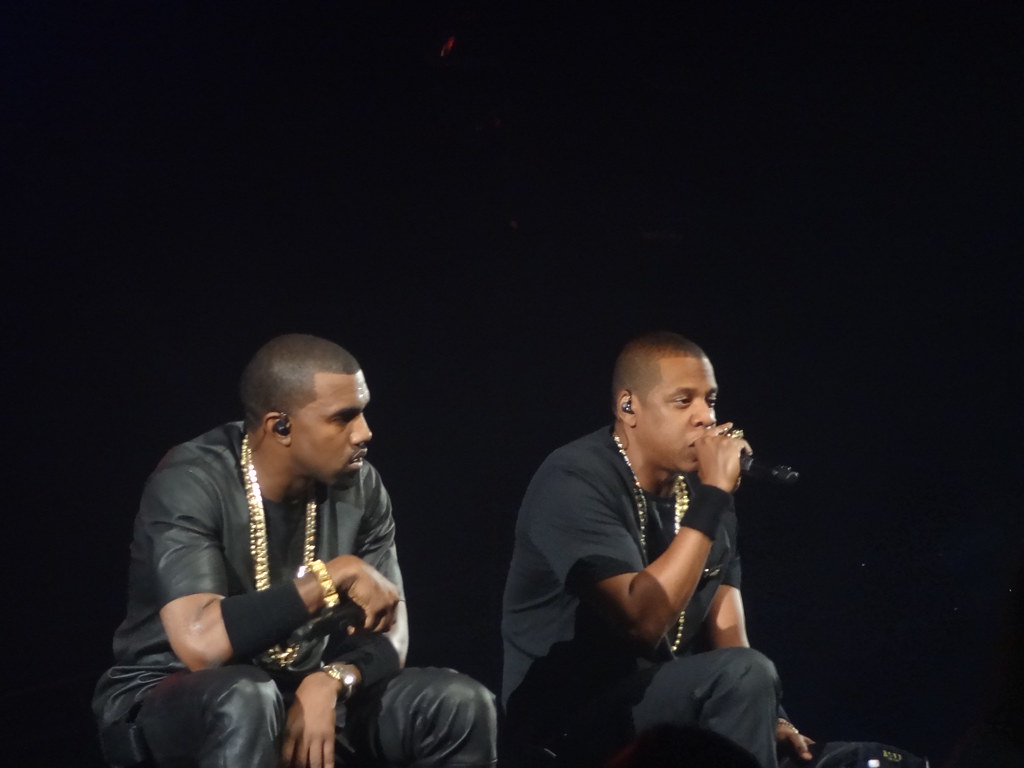
4. **Before Yeezy, There Was Pastelle: Kanye West’s First Fashion Flameout**
While the recent implosion of Kanye West’s Yeezy relationship with Adidas is well-known, it wasn’t the first time Ye’s actions led one of his business ventures to a premature end. In 2009, long before Yeezy, he launched another fashion line called Pastelle, which suffered an even quicker demise. Kanye had been building hype for years, even name-dropping Pastelle in a song and famously wearing a varsity jacket from the line at the 2008 American Music Awards.
However, Pastelle faced challenges right out of the gate. Just as leaked images of the clothes surfaced online, creating a brief flicker of excitement, the entire business abruptly folded. It was a remarkably swift disappearance. Many speculate this sudden setback was heavily influenced by a major blow to Ye’s public image around the same time: his infamous interruption of Taylor Swift’s acceptance speech at the MTV Video Music Awards.
This incident, which drew widespread condemnation, may have cast a long shadow over his burgeoning fashion endeavor. While rumors suggest he might bring the line back in 2024, the initial failure of Pastelle serves as a powerful, early illustration of how a celebrity’s public perception and controversial actions can directly impact their entrepreneurial aspirations, even before a product truly hits the market.

5. **Rihanna’s Fenty Fashion Fail: Not Every Venture Is a Billion-Dollar Hit**
Rihanna has undeniably crushed it as an entrepreneur, achieving billionaire status with her incredibly successful Fenty Beauty and Fenty Skin lines, along with her popular Savage X Fenty lingerie collection. She seems to have the Midas touch when it comes to business. Yet, even RiRi can have a misstep, proving not every venture is a guaranteed hit.
In 2019, she launched the Fenty fashion label, an ambitious high-fashion venture operating under the prestigious LVMH group, known for luxury brands like Louis Vuitton and Christian Dior. With such powerful backing and Rihanna’s undeniable influence, many expected the label to achieve instant, widespread success comparable to her other ventures.
However, the Fenty fashion label encountered significant difficulties, struggling to find its footing. Its launch coincided with the onset of the global COVID-19 pandemic, which heavily impacted luxury retail. This period of economic uncertainty, coupled with the intrinsically steep pricing of its high-fashion pieces, created an uphill battle. Ultimately, the Fenty fashion label was discontinued in 2021, after just two years, a rare but significant blip on Rihanna’s otherwise spectacular entrepreneurial radar.

6. **Flavor Flav’s Fried Chicken Flop: From Hip-Hop Hype to Fast-Food Fizzle**
Yeahhh boy! Public Enemy’s Flavor Flav, famous for his oversized clock and hypeman persona, dreamed of conquering the fast-food world. In 2011, his first restaurant, “Flav’s Fried Chicken,” broke ground in Clinton, Iowa, aimed at rivalling KFC and Popeyes.
However, this venture was a mess from the start. Flav and his co-founder/partner, Nick Cimino, were constantly at odds, leading to disputes over operations and employee payments. The restaurant closed after a mere three months, with both partners blaming the other. They eventually went their separate ways after much legal wrangling.
Undeterred, Flavor Flav sought to establish solo-owned franchises in Las Vegas and Sterling Heights, Michigan. But his subsequent attempts also swiftly failed. The Michigan location saw Flav evicted for failing to pay rent. While Flavor Flav’s showmanship worked in music and reality TV, his particular flavor wasn’t what the fast-food world was looking for, turning his ambitious dream into a memorable, and financially draining, flop.
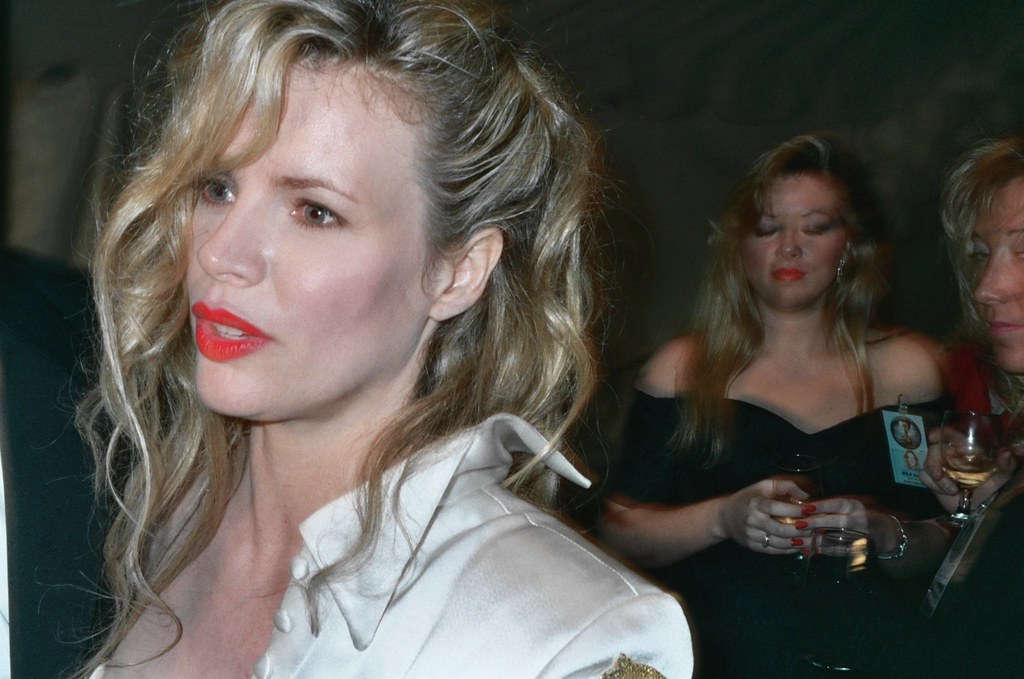
7. **Kim Basinger’s Small Town Troubles in Braselton: A $20 Million Dream Sours**
Imagine being so famous and wealthy that you decide to buy an entire town! That’s what Georgia native Kim Basinger, star of “L.A. Confidential,” did in 1989. She partnered with AmeriTech to purchase 1,751 acres of Braselton for $20 million, personally investing $600,000 for a bank building in the town’s heart.
Basinger envisioned a grand transformation into a tourist attraction with movie studios and a film festival, publicly discussing plans for art shows and cinematic events. However, she faced immense challenges, and her expansive dream never truly materialized. Actual development lagged significantly, leaving the small community of 400 residents largely unchanged.
Compounding her woes, Basinger encountered severe personal financial difficulties, intensified by a lawsuit for dropping out of a movie. She declared bankruptcy, and by 1993, sold her stake for $1 million, losing millions. AmeriTech also sold out, losing substantial sums. While her venture failed, Braselton has thrived; by 2020, its population grew to 13,403, becoming home to Chateau Elan Winery and major distribution centers, showing the town’s potential eventually shone through, just not under her initial celebrity vision.
Alright, internet, if you thought the first batch of celebrity business flops was wild, prepare yourselves for round two! Because as we’ve seen, even with mega-fame, huge bank accounts, and an army of publicists, the business world can be a brutal beast. These next seven tales are just as eye-opening, reminding us that sometimes, sticking to your day job—whether it’s acting, rapping, or even wrestling—might just be the smartest move. Let’s dive back into the deep end of celebrity entrepreneurial ambition gone wrong!

8. **Natalie Portman’s Shoe Shambles: A Vegan Vision That Stumbled**
You know Natalie Portman as an incredibly talented actress, a fierce intellect, and a passionate advocate for animal rights. So, when she decided to launch a vegan shoe line in 2008, partnering with designer Te Casan, it seemed like a match made in eco-chic heaven! This wasn’t just about fashion; it was a mission to bring ‘cruelty-free footwear’ to the masses, marrying her values with style.
However, even with the best intentions and a major celebrity name attached, the path to fashion success can be incredibly rocky. While the shoes were certainly ‘pretty,’ a crucial element seemed to be missing for many potential customers. The biggest hurdle? The price tag. Many found the ‘$200 price point a little too steep’ for what was being offered, making it a tough sell for the average shopper.
This meant that despite Portman’s genuine passion and the admirable ethical stance of the brand, sales simply ‘declined.’ The market, it seemed, wasn’t quite ready or willing to shell out that kind of cash for vegan footwear at the time, especially when perceived value didn’t match the cost. It’s a classic business lesson in balancing admirable ideals with market realities and pricing strategies.
By the end of that very same year, the ‘Natalie Portman Collection for Te Casan ceased operations.’ It was a remarkably swift downfall, proving that even a beloved star championing a noble cause can’t always guarantee a successful business venture if the product and pricing aren’t aligned with consumer demand. It was a well-intentioned stumble in the high-stakes world of fashion.

9. **Nicky Hilton’s Hotel Is a Horrorshow: Not All Hiltons Are Hospitality Hotshots**
When you hear the name ‘Hilton,’ you probably immediately think of sprawling hotels, luxury accommodations, and a family synonymous with the hospitality industry, right? So, when Nicky Hilton, sister to the equally famous Paris, decided to launch her own hotel venture, you’d be forgiven for thinking she’d have the secret sauce, or at least a cheat sheet, for guaranteed success. But sometimes, even bloodlines can’t guarantee a golden touch in business!
Back in 2006, Nicky unveiled plans for the lavish ‘Nicky O Hotel,’ a boutique dream with a grand ’94-room hotel on Miami’s Ocean Drive,’ with a second location even ‘earmarked for Chicago.’ To add a dash of high-fashion glamour, ‘Italian fashion designer Roberto Cavalli was enlisted to design the hotel suites.’ It was all set to coincide with the 2007 Super Bowl in Miami, promising an instant splash in the luxury market.
But here’s where the plot thickened and things started to go sideways. The project faced ‘persistent delays’ from the get-go, struggling to get past the planning stages and never actually seeing ‘a grand opening.’ The dream soon turned into a nightmare as the business ‘filed for bankruptcy protection in 2007,’ a mere year after its announcement. Ouch, that’s a quick trip from grand vision to financial turmoil.
And as if bankruptcy wasn’t enough, ‘Hilton found herself in a lawsuit initiated by the hotel’s developer, who alleged that she failed to fulfill her obligations under the agreement.’ Talk about adding insult to injury! Ultimately, the Miami property went ‘up for auction’ and the Chicago project was ‘abandoned.’ It’s a stark reminder that even with a famous surname, the hotel business is incredibly complex and demanding, proving that the apple can indeed fall far from the family tree when it comes to entrepreneurial success.
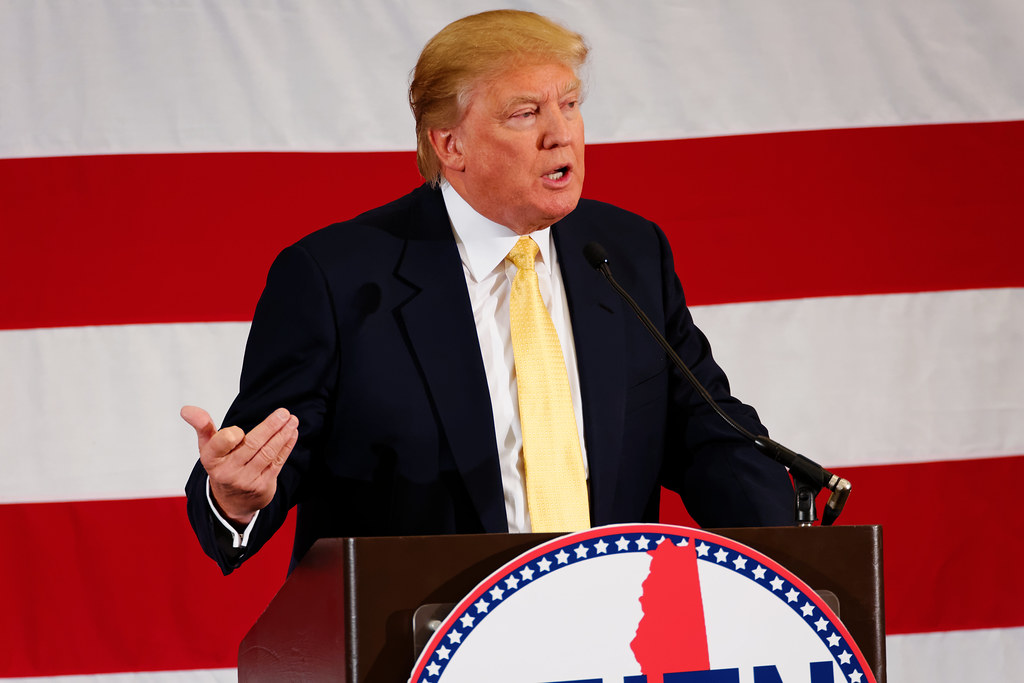
10. **Trump’s Shuttle Airlines Crashes and Burns: When High-Flying Dreams Hit Turbulence**
Before he was known for, well, *everything else*, Donald Trump had his own airline! Yes, you read that right. In the early 1990s, he acquired Eastern Air Lines’ shuttle service and boldly rebranded it as the ‘Trump Shuttle.’ It was a classic Trump move: big, flashy, and aiming to make a grand statement in a competitive market. The sky, literally, was the limit for this ambitious venture!
However, this high-flying dream quickly ran into some serious turbulence and proved ‘unsuccessful.’ In a staggering financial blow, the Trump Shuttle ‘lost $125 million within just 18 months.’ That’s a lot of frequent flyer miles turning into red ink! It seems even the Trump brand couldn’t guarantee profitability in the notoriously tough airline industry.
Adding to the airline’s woes, Trump reportedly launched ‘unfounded attacks on competitor Pan Am’s safety procedures and maintenance practices.’ While perhaps intended to sway customers, such tactics often backfire, eroding trust rather than building it. As if internal struggles weren’t enough, external forces also conspired against the venture: ‘the escalating price of oil as a consequence of the Iraqi invasion of Kuwait further contributed to the airline’s demise.’ A double whammy of self-inflicted wounds and global events!
By 1992, the ‘Trump Airlines was no more.’ It serves as a fascinating, and expensive, case study of how a combination of aggressive, perhaps ill-advised, business tactics and unpredictable geopolitical factors can ground even the most ambitious celebrity ventures. Sometimes, even the biggest names can’t escape gravity, especially when it comes to business failures.

11. **The Kardashian Sisters’ Kardashian Kard: Swipe Left on This Deal**
Ah, the Kardashians. Love ’em or… well, you know. They’ve built an empire on reality TV, beauty, and fashion, turning their name into a brand synonymous with success. But not every Midas touch turns to gold, and their foray into finance with the ‘Kardashian Kard’ is a shining example of a venture that felt ‘off from the start.’ Seriously, who saw this one coming as a *good* idea?
Launched in late 2010, this ‘pre-paid debit card’ was marketed directly ‘at young adults,’ and designed to be ‘glitzy-looking.’ But let’s be real: the queens of conspicuous consumption pushing a debit card felt, to many, inherently contradictory and, frankly, a bit predatory. The perception was that it targeted ‘financially unsophisticated’ young adults with a product that promised convenience but delivered anything but.
The alarm bells started ringing when ‘the attorney general for Connecticut, Richard Blumenthal, looked into the “Kardashian Kard” and found it was far worse than just a bad idea.’ He didn’t mince words, issuing a letter questioning the card’s legality due to its ‘pernicious and predatory fees.’ Blumenthal famously quipped, ‘Keeping up with the Kardashians is impossible using these cards.’ When a state official uses your own catchphrase against you, you know you’re in trouble.
And just like that, less than a month after its debut, the ‘Kardashian Kard got the ax.’ It was pulled ‘from the market’ with incredible speed, a testament to the swift and decisive public and legal backlash. This spectacular failure proves that even the most influential families can misjudge their market, especially when their business model appears to exploit the very audience they claim to serve. Talk about a quick exit!

12. **Jay Z’s J Hotel: Checking Out Early on a Boutique Dream**
Jay Z, aka Shawn Carter, is undeniably a titan of industries beyond music. From Roc Nation to D’USSÉ cognac, he’s proven time and again that he’s got a savvy business brain. But even for a mogul of his caliber, not every venture hits the high notes. His ambitious plans for a chain of boutique hotels, starting with the ‘J Hotel,’ offer a fascinating glimpse into a rare misstep for the entrepreneur.
In 2007, Jay Z partnered with real estate developers Charles Baichman and Abram Shnay, acquiring a ‘former Time Warner Cable warehouse in Manhattan.’ The vision was clear: to transform this industrial space into the flagship of ‘what was going to be a chain of boutique J Hotels.’ It was a bold move into the competitive New York luxury hospitality market, promising a fresh, celebrity-backed brand.
However, the grand plans began to unravel fairly quickly. The partnership ‘defaulted on their $52 million loan in 2009,’ a significant setback that halted construction and plunged the project into uncertainty. This financial misstep quickly spiraled into ‘a legal battle… between the partners and lenders,’ turning a potentially glamorous hotel launch into a messy courtroom drama.
After ‘a round of lawsuits and counter lawsuits,’ the dispute was finally ‘settled in 2010.’ The outcome? ‘Jay Z transferred the deed to the site to a real estate management firm controlled by his lenders.’ This meant the dream of J Hotels, at least in its initial form, was effectively over. It serves as a powerful reminder that even the savviest of entrepreneurs can face unforeseen challenges and legal quagmires in the complex world of real estate development, proving that not every investment can be a chart-topper.

13. **Steven Spielberg’s Dive! Restaurant: Sub-Par Performance in Celebrity Dining**
Steven Spielberg is a name synonymous with blockbuster movies, cinematic masterpieces, and frankly, making *a lot* of money in Hollywood. So, it might come as a surprise that even this directorial genius once tried his hand at the notoriously fickle restaurant business. In the mid-1990s, he and Dreamworks CEO Jeff Katzenberg launched ‘Dive!,’ a themed restaurant that was, you guessed it, shaped like a ‘yellow submarine’!
This nautical-themed eatery promised a unique dining experience, with menu items like ‘“sub-stantial salads” and “sub-lime desserts.”’ And of course, plenty of submarine sandwiches. Adding to the immersive experience, ‘every 30 minutes, the entire restaurant would simulate a deep sea dive with flashing red lights.’ Talk about dinner and a show! It had all the makings of a fun, family-friendly destination.
Initially, the two locations—one in Los Angeles and another in Las Vegas—’had early success,’ riding the wave of celebrity novelty and themed dining popularity. It seemed like Spielberg could indeed translate his storytelling magic into restaurant profits. However, as is often the case with such ventures, the initial hype faded. ‘Traffic tapered off, merchandise sales dropped,’ and the novelty quickly wore thin.
Ultimately, ‘both closed by 1999.’ What started as a splashy, imaginative concept by one of Hollywood’s biggest names ended up taking its own ‘dive,’ just not the profitable kind. It’s a testament to the unpredictable nature of the food industry, where even a master storyteller like Spielberg found that a captivating theme isn’t always enough to keep the customers—or the profits—flowing.
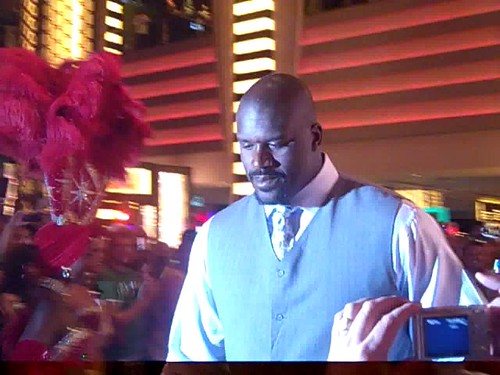
14. **Planet Hollywood: A Galaxy of Stars, But No Stellar Returns**
If ever there was an iconic example of a celebrity business venture that went big and then spectacularly crashed, it’s ‘Planet Hollywood.’ This wasn’t just one celebrity; it was a constellation of A-listers at the absolute peak of their powers: ‘Sylvester Stallone, Bruce Willis, Demi Moore, and Arnold Schwarzenegger.’ In 1991, they were all smiles at the launch, envisioning a global empire built on movie memorabilia and themed dining. What could possibly go wrong with *that* much star power?
Well, as it turns out, a lot. The restaurant chain did experience an initial boom, growing to ‘more than 100 locations’ worldwide. It even went public at ‘$32 per share in 1996,’ seemingly on top of the world. But this high-flying success was short-lived, as the wheels quickly started to come off. By 1999, the company ‘filed for bankruptcy,’ with shares plummeting to a mere ‘$1.’ Talk about a dramatic drop!
The struggles continued, with ‘Schwarzenegger severed ties with the company in 2000,’ likely wanting to distance himself from the financial turmoil. Then, it ‘filed for bankruptcy again in 2001,’ solidifying its place in the annals of major celebrity business failures. The allure of movie props and celebrity endorsements just wasn’t enough to sustain what became a financially unsustainable model.
Today, ‘the company is now privately owned by businessman Robert Earl,’ and it operates with ‘just a handful of locations, including New York City, Las Vegas, London and Paris.’ It’s a far cry from its ambitious global expansion. Planet Hollywood stands as a cautionary tale that even the combined star power of multiple Hollywood legends couldn’t guarantee long-term success against the brutal realities of business and over-expansion. It’s a wild ride that proves even the biggest stars can lose millions trying to run a restaurant empire.
And there you have it, folks! Another deep dive into the sometimes-hilarious, often-heartbreaking world of celebrity business blunders. From vegan shoes to submarine restaurants, and ill-fated debit cards to grand hotel schemes, these stories serve as a vital reminder that entrepreneurship is no joke, even when you’re famous. It takes more than just a recognizable face or a hefty bank account to build a lasting business. It demands grit, smarts, impeccable timing, and a whole lot of luck. So the next time you see a celeb launching a new venture, you might just find yourself thinking, ‘Well, I hope this one doesn’t end up on a list like this!’ Because as these tales prove, when it comes to business, even the brightest stars can spectacularly burn out.


